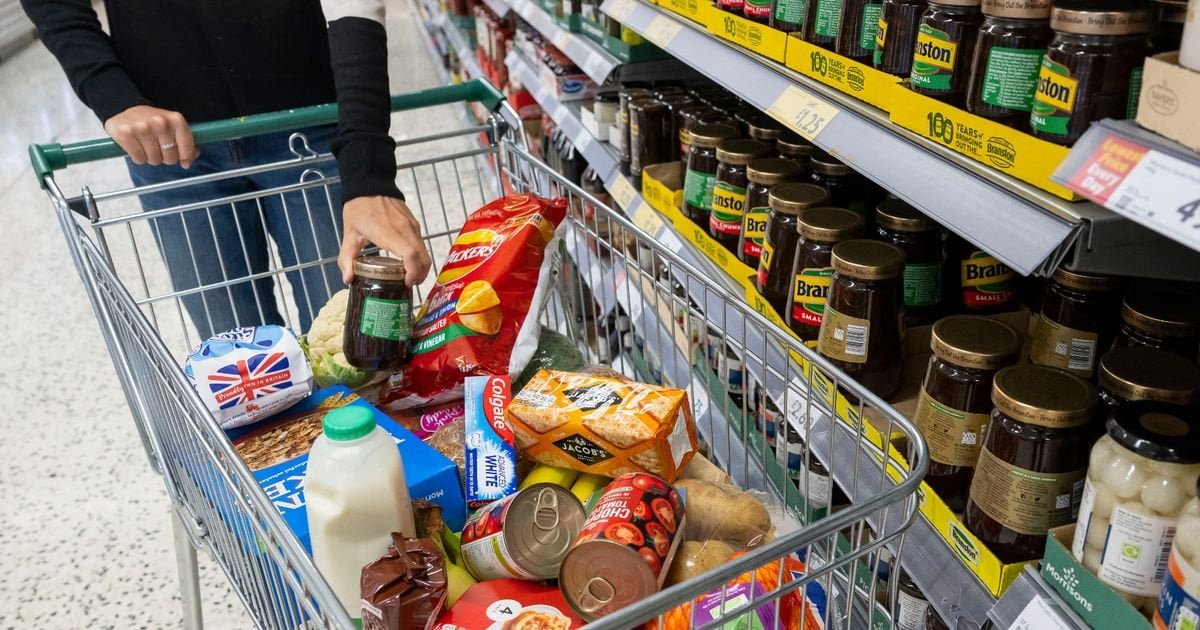UK Inflation Rises to 10.1% on Back of Soaring Food Prices – Inflation in the United Kingdom has surged beyond 10% for the second time this year, as people face the largest annual jump in food costs in more than 40 years amid the cost-of-living crisis. The consumer price index increased to 10.1% in September, returning to double digits following a tiny dip to 9.9% in August, according to the Office for National Statistics (ONS).
The last time it was higher was in 1982. City economists had predicted a somewhat lower rise of 10%. Soaring food and beverage costs were the primary driver of the latest cost of living increase, with an annual increase of about 15%, the fastest annual increase since April 1980, as the prices of bread and cereals, meat, milk, cheese, and eggs skyrocketed.
The September inflation rate is critical since it is used to adjust pensions and benefits for the following April. Despite concerns that the chancellor, Jeremy Hunt, might violate the triple lock guarantee on pension rises, Liz Truss assured on Wednesday that she would maintain it.
People Also Read: Joe Biden Calls Liz Truss Tax Cuts a Mistake as Political Fallout Continues
The Conservative party’s platform pledge guarantees that state pensions would rise each year in line with inflation, average salary growth, or 2.5%, whichever is greater. However, benefits are still at risk. Charities warned that failing to deliver an inflation-matching boost, following the largest real-terms decrease in 50 years earlier this year, would exacerbate poverty.
“It is morally indefensible that the government should still be considering leaving people with even less ability to pay for what they need,” said Rebecca McDonald, the chief economist at the poverty charity the Joseph Rowntree Foundation.
Following Hunt stated decisions of “eye-watering difficulty” were required to balance the books after the failed mini-budget, the government is said to be considering hiking benefits in line with wage growth of 5.5%, saving the exchequer more than £2 billion next year.
According to the Resolution Foundation, such a change would have severe effects for households struggling with rising living costs. A single disabled adult on universal credit would lose £380, a working single parent with one child £478, and a working couple with three children £978.
Jack Leslie, a senior economist at the thinktank, said: “While the significant Treasury savings may look tempting in the context of its attempts to fill its fiscal hole, the cost to 10 million working-age families and almost every pensioner would be huge.”
Consumers encountered price rises across a wide range of goods and services, according to the most recent ONS snapshot, including hotel overnight stays, furniture, and domestic goods such as washing machines, electric fans, and vacuum cleaners.
The hefty price hikes were countered in part by a continued drop in the price of gasoline, as well as a steeper drop than typical for airline tickets at this time of year. According to the ONS, business costs are beginning to climb more slowly, reflecting a global drop in crude oil prices in September.
The statistics come as homeowners face rising mortgage costs, rising Bank of England interest rates, and a dramatic spike in UK government bond prices sparked by last month’s mini-budget. Despite the increased dangers of recession as rising living costs drive families to cut down on spending, the central bank is expected to hike interest rates from the present level of 2.25% in an effort to reduce inflation.
People Also Read: Liz Truss Bows to Pressure With Corporation Tax U-turn On the Table
According to the ONS, electricity prices increased by 54% and gas prices increased by 95.7% in the year to September. Statisticians will assess how a reduction in the term of the government’s energy price guarantee will influence the headline rate of inflation and make an announcement on October 31 – the same day as Hunt’s debt-cutting plan.
The Labour shadow chancellor, Rachel Reeves, claimed the latest numbers showed the government had lost control of the economy in the midst of its own crisis. “It’s clear that the damage has been done. This is a Tory crisis, made in Downing Street and paid for by working people,” said Reeves. “The facts speak for themselves. Mortgage costs are soaring. Borrowing costs are up. Living standards down. And we are forecast to have the lowest growth in the G7 over the next two years.”




